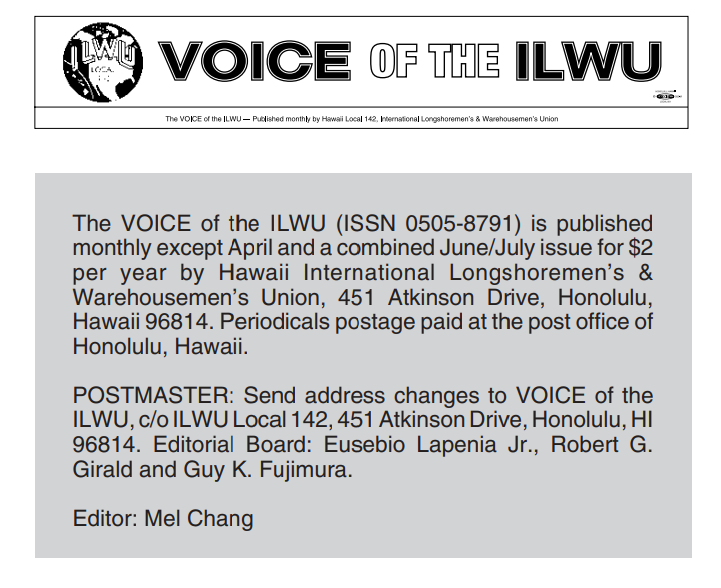In less than ten months—D-day, Nov. 2, 2004—the future of our country and that of the whole world will be decided. If George W. Bush gets another four years in the White House, if both houses of Congress remain controlled by the Republicans, the labor movement will be facing its biggest crisis since the McCarthy witch hunts of the 1950s.
The fate of all American working people—union and non-union—of working people around the world, of human and civil rights and of the global environment hang in the balance. Fathoming depths of damage Bush has done in the three years since he lost the election—while knowing he faced another race— it’s hard to imagine what he’ll dare to do if he wins this time and doesn’t ever have to face voters again.
Grim times for workers Between war, globalization, unemployment and privatization, working people haven’t faced so grim a reality since the Great Depression of the 1930s. Back then a desperate working class movement, inspired in large part by the West Coast Maritime Strike of 1934 and its victory that established the ILWU, stemmed the tide of the corporate greed of the 1920s. It brought unions, decent wages and conditions and basic human dignity to workers. It paved the way for employer-paid vacations, health care and pensions—all now under attack by the employers and the Bush administration.
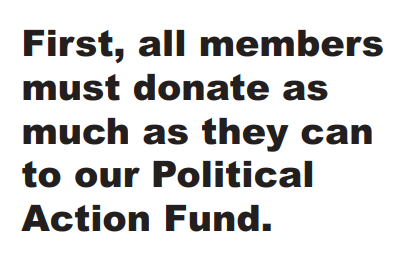
Once again the ILWU is challenged to become a force in turning the labor movement into the leaders of a social movement. Even if the deck seems stacked against us, we are not without hope. This union has faced odds this tough before.
Convention goal: Beat Bush
The ILWU’s International Convention last spring decided almost unanimously that beating Bush in November 2004 is the number one goal of the union. We don’t stand much of a chance of moving forward on our other programs until Bush is out of the way. We are already moving on the Convention’s mandate and are continuing to develop our strategies to stop Bush’s war on workers.
Put our money where our mouth is
First, all members must donate as much as they can to our Political Action Fund. It is an unfortunate truth of politics and power that money opens doors when our rank-and-file legislative activists go to the halls of Congress to lobby for our issues, be they port security to protect our longshore members, or cabotage laws to protect our IBU members, or support for the domestic sugar industry to protect our sugar workers in Hawaii and California, or occupational health and safety, Social Security or trade agreements that affect all of us, including all American working people.
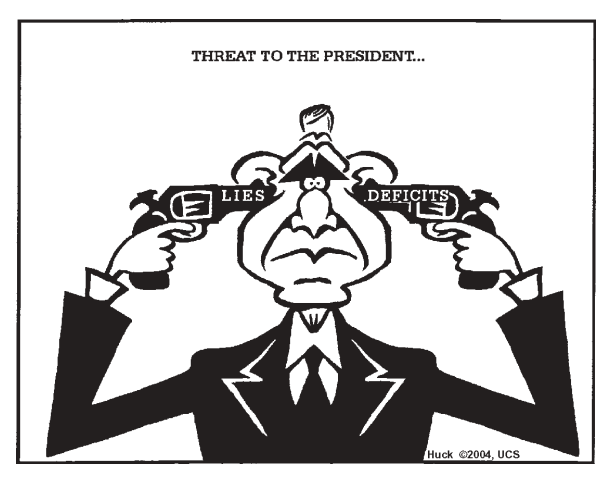
One thing we learned during the 2002 longshore contract struggle, when Congressional Republicans were threatening to pass laws taking away our rights to strike and bargain collectively, is that we need friends in high places. And if we are able to withstand the employers’ continuing onslaught of slanders against us, we need to make sure that those who stood up for us then remain in a position to help us later. With your contribution, the job you save may be your own.
We must all become activists
But money alone is not enough. We need every ILWU member to become a political activist. First you must be registered to vote so your voice can be added to the chorus calling for change.
But the ILWU, although strong and vocal, is a small union. So we need each member’s voice to be amplified. That means you need to make sure everyone in your family eligible to vote is registered, and that all your friends and their families, friends and coworkers are registered and understand what is at stake for working people in November.
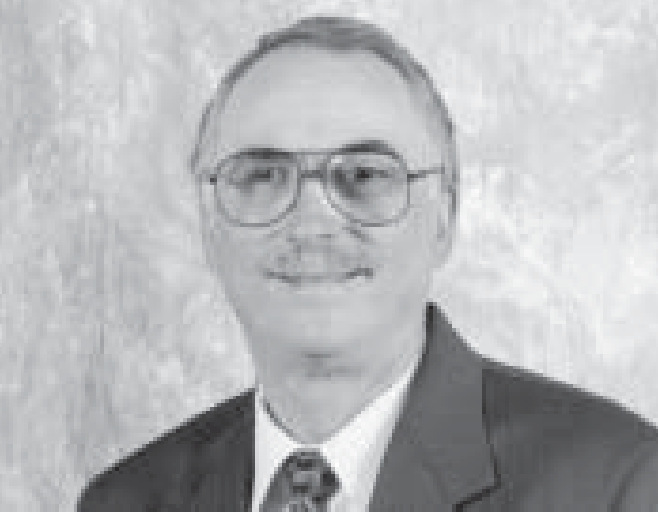
From there we need to fan out to our communities. The ILWU needs to be visible in our communities, leading and inspiring by example. You can join these coordinated efforts by volunteering at your local. Your local officers will help you plug in with the work of the ILWU District Councils—the political organizations of the union in each region—and the area’s Central Labor Councils— the political coalition of all AFL-CIO unions locally.
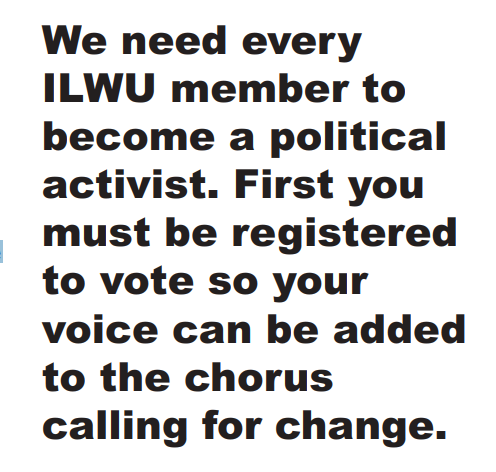
[In Hawaii, the political organizations of the ILWU are your Local and Division Political Action Committees, and the equivalent of the Central Labor In less than ten months—D-day, Nov. 2, 2004—the future of our country and that of the whole world will be decided. If George W. Bush gets another four years in the White House, if both houses of Congress remain controlled by the Republicans, the labor movement will be facing its biggest crisis since the McCarthy witch hunts of the 1950s. Beat Bush in November I N T E R N A T I O N A L P R E S I D E N T ’ S R E P O R T Council is the Hawaii State AFLCIO.]
On Jan. 20 the ILWU International Officers and Coast Committeemen convened a meeting of the officers of our District Councils, our Coast Legislative Action Committee and other political activists in the union to map out and coordinate our fundraising, campaigning and lobbying efforts. Your union has a plan and we are moving forward with it. But the ILWU will not be acting alone. We are already working with the national AFL-CIO to multiply our efforts. While we will focus most of our attention on the states where we live—California, Oregon, Washington, Alaska and Hawaii—we plan on taking our influence nation-wide.
In the November 2002 Congressional elections we pioneered a new program with the AFL-CIO, sending more than 30 members to campaign in battleground states, those swing states where the vote was close and we could help make the difference between victory and defeat. Our ILWU political road warriors were an inspiration to union members wherever they went, galvanizing the campaign and getting out the vote. In 2004 we are planning to send at least 100 ILWU activists out on the campaign trail.
If we apply ourselves to the task ahead, we can send Bush back to Texas in November.
